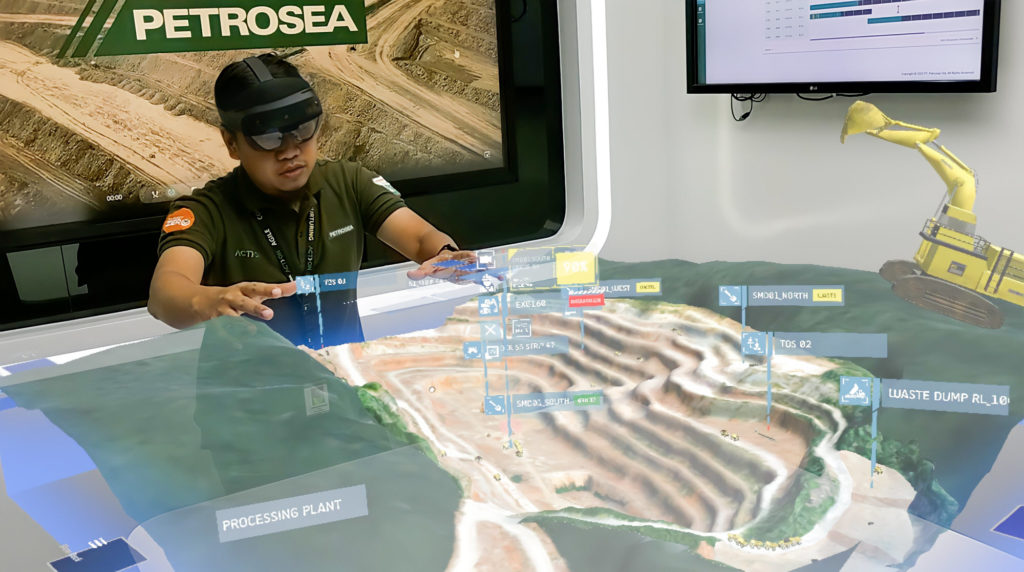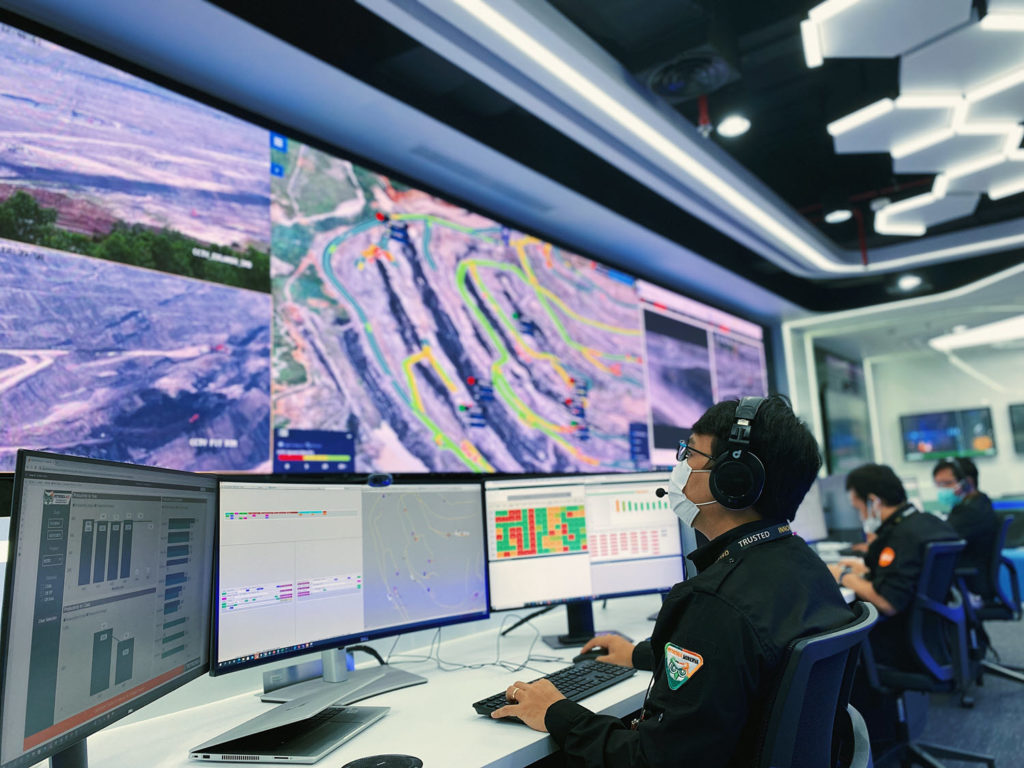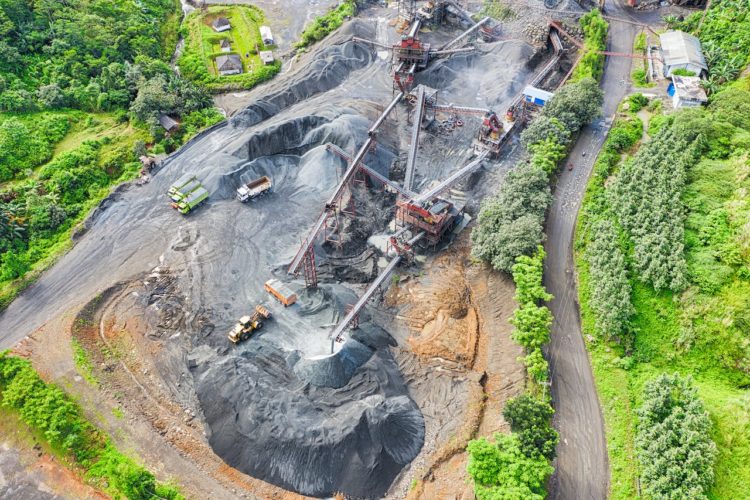Mordor Intelligence forecasts Indonesia’s oil and gas market to see a CAGR of more than 5% during the forecast period, 2022-2027. While the pandemic caused a decline in demand for petroleum products, the market is expected to recover once the restriction imposed to control the pandemic are removed and demand for petroleum rises.
Contract mining, engineering, procurement and construction and oil & gas services company, PT Petrosea Tbk, took away two awards at the IDC Future Enterprise Awards 2022, including Best of Future Operations for its remote operations centre, and the special award for sustainability with its 3D Strategy (Diversification, Digitalisation and Decarbonisation).

Elaborating further on its 3D Strategy, Sreecharan Nagarkal, chief transformation officer for PT Petrosea Tbk, said the aims to diversify the company’s business, leverage digital capabilities, and enhance operational excellence by adopting the latest technologies to create superior and sustainable operations.
“Petrosea defines sustainable operations as an aspiration that aligns business, environmental and social objectives in the company's activities to maximise value creation for our internal and external stakeholders,” he noted.
Efforts such as carbon emission reduction, waste and water recycling, community empowerment, social enterprise development, responsible supply chain and others are several initiatives that the Company have been implementing as part of its sustainability strategy.
The 3D strategy is implemented with an overarching approach of operational excellence driven by operational and strategic initiatives cascaded from each pillar across the mining, engineering, procurement and construction value chain, and new business ventures. These initiatives entail key steps, milestones, timelines, team structure, and financial analysis.
Petrosea is continuing to strengthen its internal capabilities and capacities, while also engaging with external partners to adopt solutions, technology and digitalisation that will support the Company’s overall sustainability.
Challenges in committing to a sustainability initiative
Petrosea aspires to deliver the best technology-enabled services by improving efficiency and productivity whilst contributing to sustainability.
From an industry perspective, mining is a sector that is conventionally complex when it comes to managing environment, sustainability and governance (ESG) in operations. He conceded the slow growth of immediate technology solutions that are technically, financially, and commercially feasible.
From an operational perspective, the challenges include managing ESG priorities and initiatives across multiple projects in our mining and EPC business lines. With this characteristic, raising ownership and awareness across the organisation is a priority.
“We have been driving agile collaboration by establishing ESG squads and task force teams to collectively explore, develop and implement sustainability initiatives,” said Nagarkal.

He acknowledged that during the early stages of its digital transformation, onsite operational efficiency was the most glaring challenge the company faced. Both fossil fuels as well as the equipment used, including dozers, dump trucks, and excavators, were the primary carbon source in its operations.
“We have reaped the benefits of technological interventions to implement good mining practices to ensure that its operational activities are conducted efficiently with respect to fuel consumption to reduce carbon emissions,” said Nagarkal.
Drawing granularity of data and insights and pursuing seamless measuring and monitoring are also increasing challenges Petrosea aim to tackle. To drive sustainable operations, measurement, and monitoring of ESG performance are key.
Petrosea’s ESG data has been recorded in various instruments including digital assets. Hence, there is a challenge to refer to a single source of truth and to consolidate the data to inform better decision-making and action items about sustainability.
“We also need to responsibly grow our business and address our stakeholder concerns while augmenting our initiatives to improve sustainability performance on key ESG issues in our day-to-day operations. Stakeholders, including shareholders, investors, financiers, clients, and the government, are looking at the industry to adopt various sustainability standards and instruments to demonstrate their commitment,” continued Nagarkal.
He added that aligning and managing these expectations have also been a focus.
Setting targets for each Environmental, Social and Governance)
“Our commitment to sustainability has been underpinned by Target Zero which refers to Zero Harm to People, Community, and the Environment. Further to this, we established Petrosea Sustainability Framework in 2022 which represents our aspiration, ESG focus area, and key operational and financial responses,” said Nagarkal.
Within the Framework, we have defined Petrosea’s sustainability material topics that are relevant to our business and operations which we aim to address. These include managing carbon emissions, energy, waste, and water, protecting the health and safety of our people, contributing to local development, ensuring compliance, and promoting a working place free of bribery and corruption.
“We have set internal targets for these topics and aligned them with Sustainable Development Goals priorities. For instance, our efforts in reducing our carbon emission contribute to Goal 13 Climate Action while our initiatives in waste reduction, reuse, and recycling support Goal 12 Responsible Consumption and Production,” continued Nagarkal.
Tracking progress against targets
Nagarkal acknowledged that they cannot manage and improve what they cannot measure. “Therefore, our measure, monitor and mitigate approach is our keystone to ensure smooth implementation and tracking for our sustainability efforts,” he explained.

He also revealed that ESG metrics for tracking have been aligned with international sustainability standards such as Global Reporting Initiative (GRI).
To support this, the company relies on ESG data stewardship through periodic data gathering and consolidation on our sustainability performance and assesses them against targets.
“We are now in the process of enhancing our measurement and monitoring through an internally developed digital platform that serves as a single source of truth for sustainability performance across the organisation. We believe this will take our tracking to the next level that enables us to make better decisions and develop more effective mitigation for our sustainability priorities,” he added.
In addition to this, once every semester, a progress report is submitted to Petrosea’s Sustainability Committee during which the group go over initiatives, achievement, challenges, and brainstorm solutions and seek necessary decisions.
Getting the organisation to take part in the sustainability journey
Nagarkal said everyone in Petrosea is committed to adhering to sound principles of GCG and has adopted corporate governance practices to ensure that the company is accountable, independent and transparent for all stakeholders.
He conceded sustainability is a journey that requires not only management's commitment but also employee support for solid initiative implementation.
“We pursue this through continuous awareness building and competency development. In addition to the list of executed initiatives and the agile collaboration happening throughout the organisation, we have an established change management program that helps in socializing and nurturing our people in the adoption of ESG,” he added.
"A positive perspective and awareness of people will be reflected in the sustainable operations and various channels are used to build awareness while bringing in outside-in perspectives by conducting knowledge-sharing sessions with subject matter experts, for instance, using an internal forum serving as a means of communication amongst staff members and self-learning events."
Sreecharan Nagarkal
Examples include morning teas for upper-level managers, Knowledge Sharing Sessions, workshops, podcasts, magazines, and programs offered through human capital development. Knowledge Sharing Sessions or KSS has been a platform to host webinars with industry experts including sustainability topics.
“In parallel, we are currently preparing a sustainability competency development program aimed at different levels of our employees to further accelerate the acquisition of sustainability and ESG knowledge to support our ongoing and future initiatives,” he revealed.
Three lessons to learn from
Firstly, establishing sustainability governance is key. It is important to define clear responsibilities and accountability for sustainability within the company, especially for a company which has multiple business lines and operations spread across the region.
“Our agile collaboration model with squads and task force teams backed by executive support and Sustainability Committee have fostered stronger sustainability culture and enabled more progressive implementation of our initiatives,” he added.
Secondly, sustainability must be embedded into decision-making processes and operations. To make an impact, sustainability should be part of day-to-day with a long horizon perspective of business.
“From our experience, it is important to ensure that sustainability considerations are integrated into all aspects of the organisation's decision-making, from strategy development to operational planning and execution. For instance, protecting the health and safety of our people, and reducing our carbon footprint has been an integral part of our operations reflected in our OKRs,” he added.
Lastly, harnessing the power of technology and digitalisation presents opportunities for solutions to tackle some of our sustainability issues. With Project Minerva, the company leverage advanced analytics and the internet of things (IOT) to enhance operations to be more sustainable.
“For instance, optimising the management of our operations through effective dispatch and enhancing predictive maintenance while improving asset health and asset intelligence which aims to enhance the performance and extend the lifetime of our fleets and components,” he added.
Advice for others pursuing sustainability
“We encourage leaders to view sustainability from both a business and a human sustainability perspective. This means viewing sustainability as an avenue to balance and harmonise business, environmental and social objectives which represent our aspiration to create further values for our stakeholders. Adopting a sustainability culture and mindset is the first important step for every organisation.
“We believe impact-oriented digitalisation and technology adoption helps in achieving both financial and ESG. Consequently, companies can experience the same benefits while addressing all the 3 critical aspects of people, process and technology that helps achieve superior sustainable performance.”
Sreecharan Nagarkal
“The fact that we are responsible and can contribute to the creation of a better living environment for our future generation, giving them equal opportunities to enjoy nature’s gifts to the fullest, is incredibly important,” he concluded.




